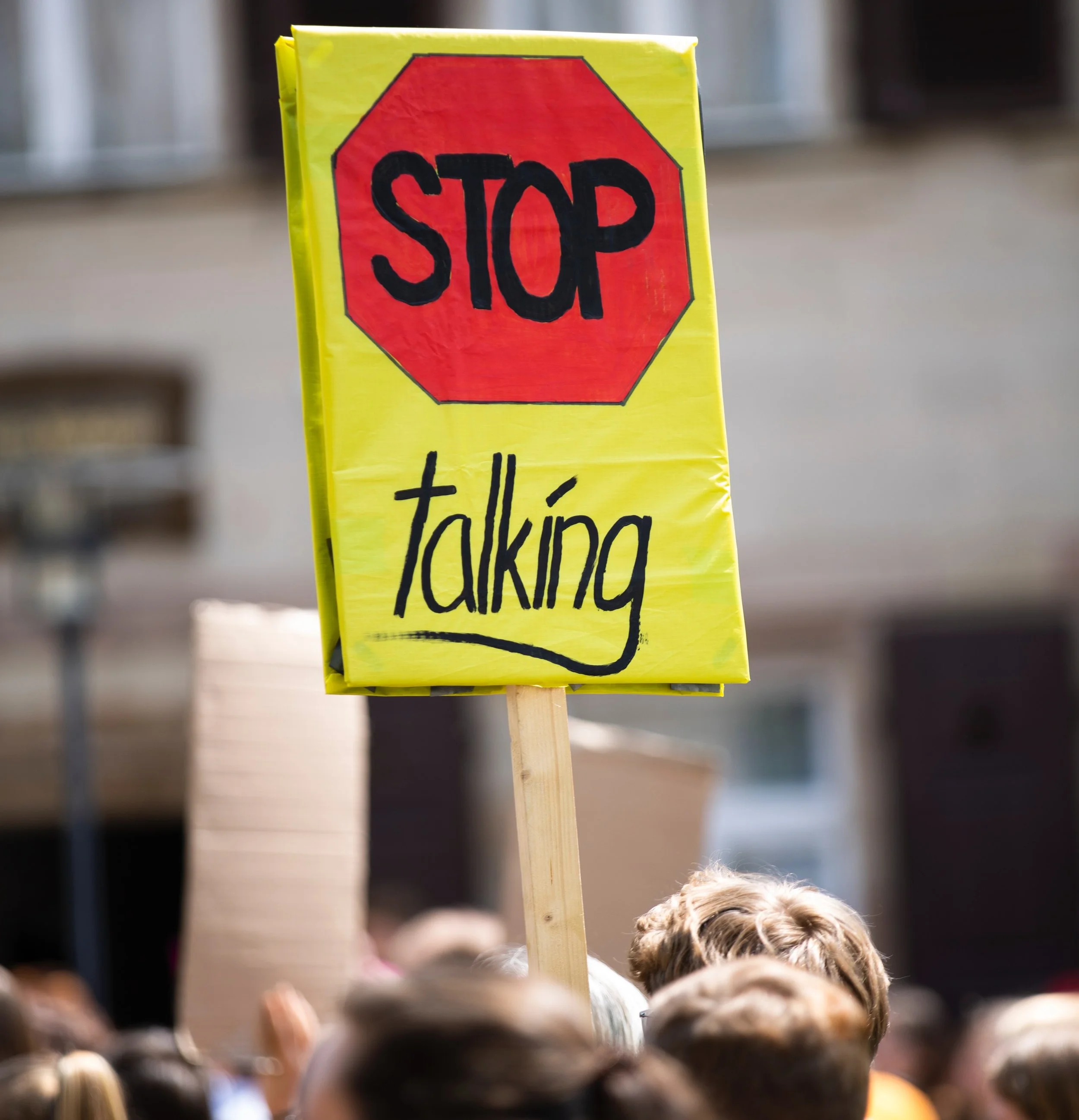While published last year, David Fenton's op-ed on climate communications is more timely and more relevant than ever.
As Fenton writes, the large scale ignorance and confusion regarding climate change "is due to decades of fossil fuel industry propaganda. But the environmental advocacy organizations, their funders and the Obama and Biden White House share some of the blame: They have never mounted a campaign at scale to get the truth to the public."
ABSOLUTELY TRUE. AND...
"In the U.S., although environmental advocacy organizations bring in billions of dollars a year, almost nothing goes to public communication, and most of that is for fundraising. This guarantees failure on the battlefield of public opinion. ”
The climate change language and messaging is, for the most part, convoluted, off-putting and DULL.
So when I see recent findings by the ClimateWorks Foundation concluding that climate change mitigation philanthropy has remained flat and is disappointing, I too am disappointed but not surprised. Why isn't communications key to the Climate Works 2023 funding trends report, much less to the cultural conversation? While report author Helene Desanlis points to giving trends and the need for multi-year grants, I wonder how much organizations make communications messaging central to securing those grants. While Helen M.ountford declares that ...“This report should be a wake-up call for philanthropy. The intensifying climate crisis demands greater ambition, scale, and urgency to safeguard lives"....I think, EXACTLY. That means that organizations should be funding and prioritizing communications that are strategic, clear and compelling.
If it's widely acknowledged that mobilization is key to shifting public sentiment and creating change, nonprofits and policy-makers need to shift the climate change narrative to make it engaging and actionable. It's not what these organizations are saying that's the problem it's HOW. Research shows that people do not much know what terms like “net zero,” “carbon,” “emissions” and “climate justice” even mean so how could they possibly care?
hashtag#climatechange hashtag#climatechangecommunications hashtag#climatejustice hashtag#climateaction hashtag#strategiccommunications hashtag#nonprofitcommunication hashtag#climatecrisis
RE-CRAFTING ESG REPORTS TO RESONATE
Static reports, in short, particularly voluminous ones, are not necessarily the best channel to deliver information that resonates, inspires, motivates, and activates stakeholders. These audiences need to be emotionally engaged, ideally by a cascade of compelling content that lives alongside, not inside, your report.
IS YOUR ESG REPORT DESTINED FOR THE RECYCLE BIN?
To engage stakeholders, ESG reports must go beyond data and get to the ‘why’
It's time to prioritize the survival of indigenous people, the world's forest stewards
WHAT'S YOUR WHY? AND WHY SHARING IT WILL GET YOU HEARD
In what is still one of the most true, inspiring and relevant TED Talks ever, How Business Leaders Inspire Action, best-selling writer Simon Sinek spoke about the key to successful communication: Start With Why. WHY, then, are so many businesses and nonprofits talking about their successes, particularly around sustainability, without referring to their why?
SUSTAINABILITY IS BRAND-CHALLENGED
Think about the attributes that great brands share—passion, purpose and clarity. They’re distinctive, interesting and engaging. Then think of sustainability. Ugh. Even the word rings wrong. It’s leaden, virtuous, earnest, wonky, dense, dorky. A literary liability—in the US, anyway. In the UK and in other places, sustainability is bouncier, younger and actually speaks to people, not at them.
The question is how to sexy up sustainability so that it sounds less stale.
STOP STORYTELLING. START TRUTH TELLING
I’ve been wracking my brains, trying to conjure up a new and original blog post to write on storytelling—the value of brand narratives and sustainability stories. Then I watched the video of Greta Thunberg, who in her address to the delegates UN Climate Action Summit declared that it’s time to “tell it like is.”
4 Levers to Build a Better Policy to Stop the Amazon Fires
LOST IN LANGUAGE
WHY MAKE CLIMATE CHANGE A LAUGHING MATTER?
While psychologists, journalists and behaviorists posit theories around fear or hope as the greatest motivator for action around climate change or other tough topics, I’d promote satire as a viable alternative—particularly if your organization or brand is targeting Millennials. As John Oliver quipped in response to a poll that found 1 in 4 Americans deny the existence of climate change: “Who gives a shit? You don’t need public opinion on fact.”












